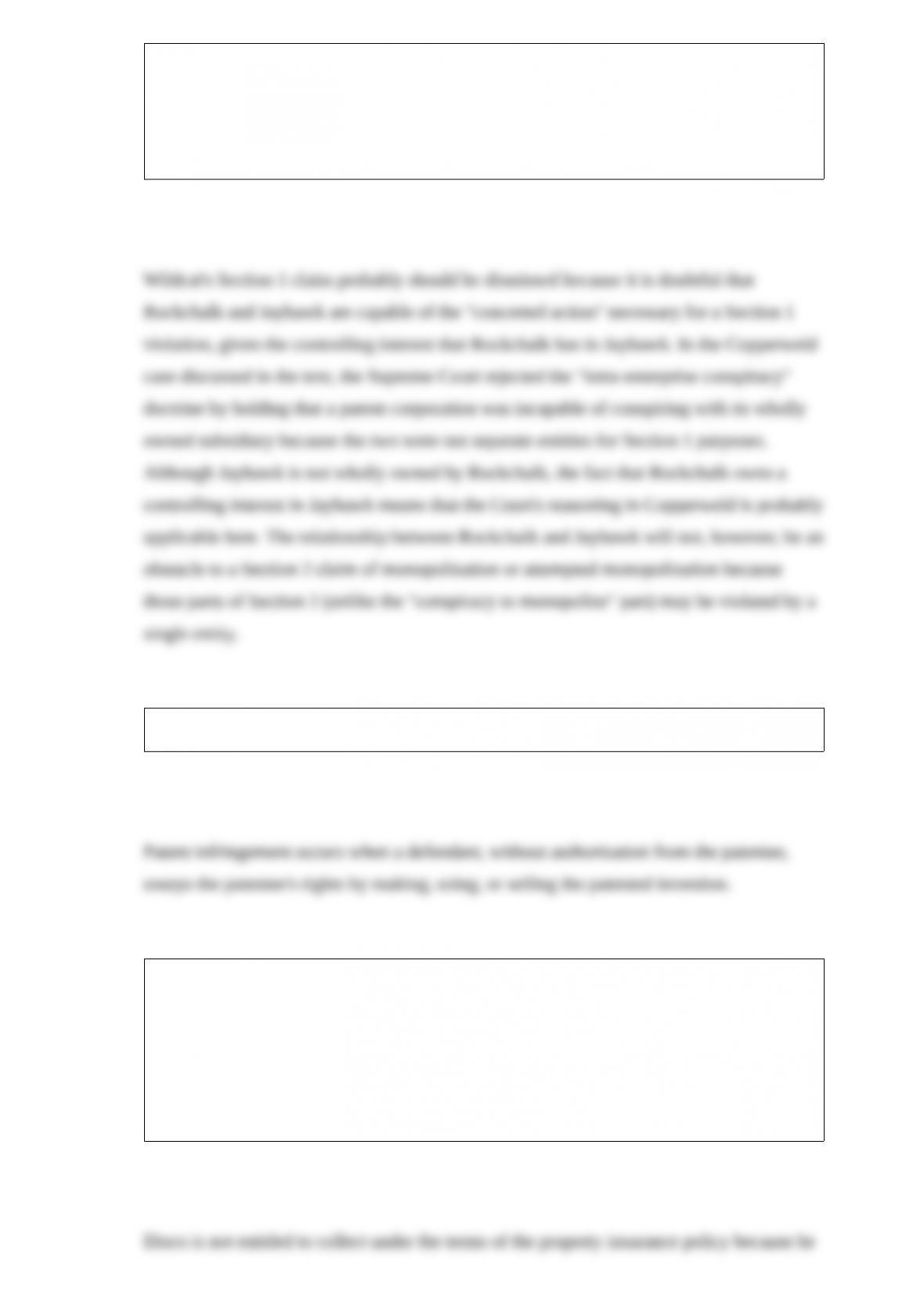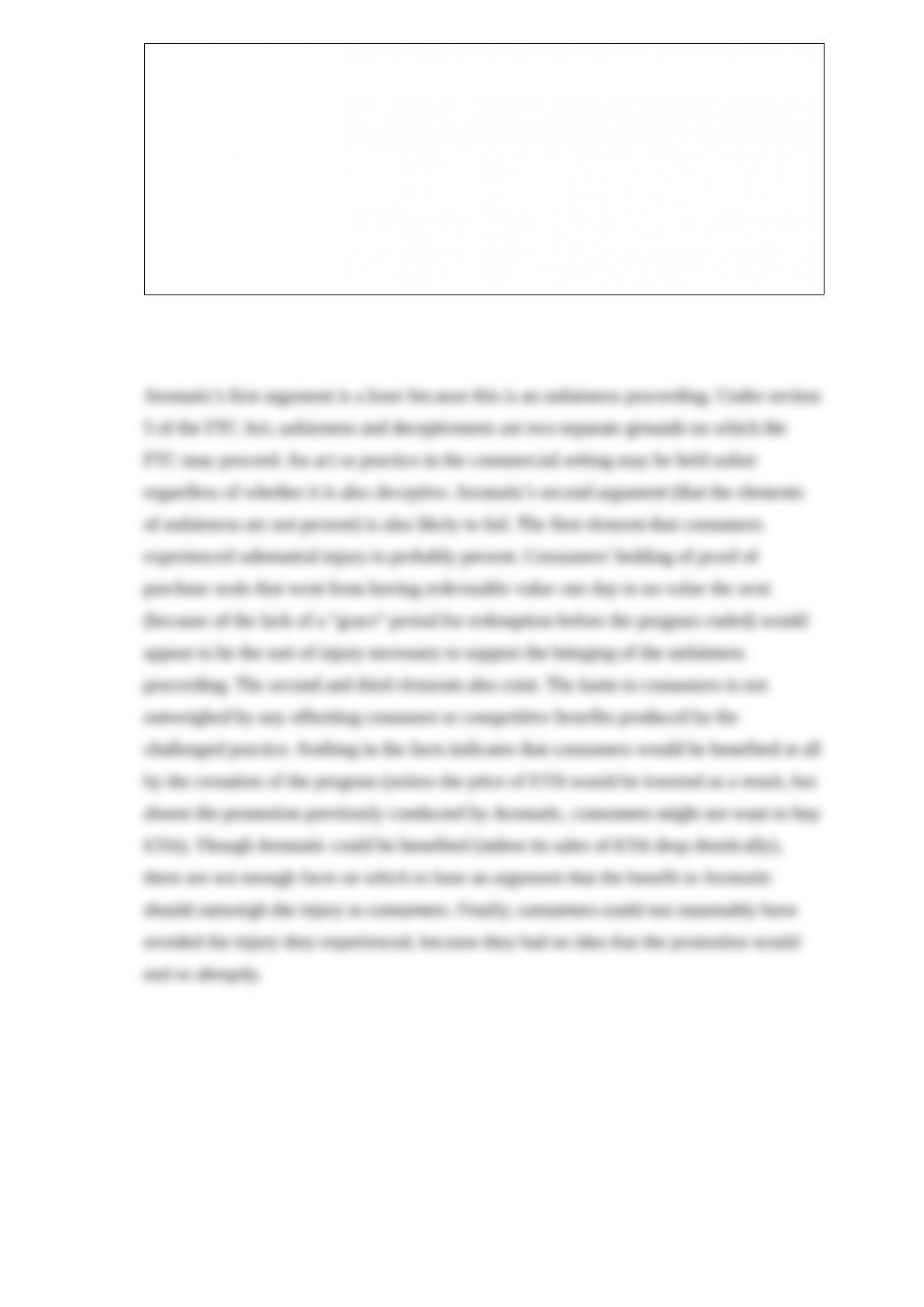Homer's negligence caused an automobile accident with Bart. As a result of the
collision, Bart's car collides with a telephone pole, causing it to fall. The falling pole
then takes out some electrical power lines. The resulting power outage leaves Patty
without any light in her apartment. As she fumbles in the darkness, she trips over her
cat, falls, and is injured. Patty sues Homer. In order to avoid liability, Homer's best
defense is that:
A. there is no actual cause between the negligence and the injury.
B. there is no proximate cause between the breach of duty and the injury.
C. Bart's car was the one that collided with the telephone pole.
D. the electrical power lines should not have fallen under the force of a car.
Cathy Young, age 16, buys a 1973 Chevy Camaro from Mark Watson, age 23, for $400.
Cathy's indulgent parents, who give her everything she wants, loaned her the money for
the car. The reason for Cathy's purchase is that all her friends have cars and she feels
left out without one. One week after buying the car, however, Cathy changes her mind
and tells Mark that she wants to disaffirm the contract. When Mark comes to pick up
the car and give Cathy her money, though, Cathy changes her mind again, telling Mark,
"I'll stick by the deal." However, when Cathy's parents gave her a new car for her 17th
birthday, she finally decides to disaffirm once again. Which of the following is correct?
A. Cathy cannot disaffirm because the car is a necessary.
B. Cathy cannot disaffirm because she ratified the contract by saying "I'll stick by the
deal."
C. Cathy cannot disaffirm because we have a sale of goods and Article 2 of the UCC
says that 16 is the age of contractual capacity.
D. Cathy can still disaffirm.
How are limited liability companies (LLCs) taxed?
A. They are always taxed the same as general partnerships.
B. They are always taxed the same as corporations.
C. They are taxed either as partnerships or as corporations, at the option of the LLC.
D. They are taxed either as partnerships or sole proprietorships, at the option of the
LLC.



























































